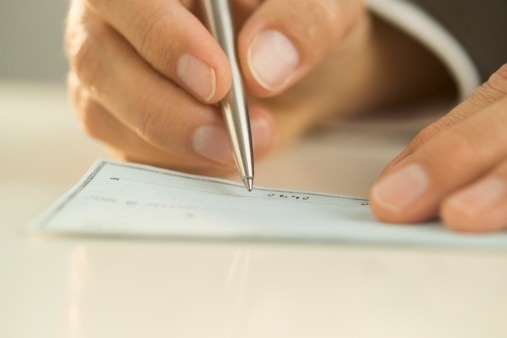Whether you have credit card debt, student loans, or some other forms of personal debts, too much of it can leave you feeling overwhelmed.
This year, you can learn new ways to manage your money, create a monthly budget, and trim excess spending for a new, more financially stable you.
Read on to discover a comprehensive list of some ways you can kick off the new year right by clearing your personal debts and lowering your bills to give you more financial freedom to reach your financial goals.
Pay More than Your Minimum Due on Credit Cards
Credit cards offer a great way to have access to money in a pinch, but most consumers use them simply to buy things they want instantly. Over time, your credit card debt can start to feel out of control, especially if your monthly bills reflect a high-interest rate.
Whenever you pay the monthly minimum amount due, most of that money goes right toward paying interest, and it can seem as if barely any of it went to the principal balance. This can get discouraging, and you may feel as if you’re fighting a never-ending uphill battle.
One way to pay off your personal debts faster is to pay more than the monthly minimum each month. Even if it’s just $5 or $10, that extra amount can help you start chipping away at the balance faster.
This same concept applies to any debt you have including student loans, personal loans, and basically any amount of debt you owe with interest attached. The more you can pay over the minimum, the quicker you’ll be able to pay it off.
Paying just the minimum amount due to your card issuer means it could take years for you to pay off your credit cards. And, that’s assuming you’re not incurring any more debt on top of what you already owe! Use an online budgeting tool or calculator to help you determine how much more you can, and should, pay every month to chip away at that nagging debt.
Consider a Balance Transfer for Your Credit Cards
If your credit score is decent (typically above 650), a balance transfer to a more favorable card can save you hundreds or even thousands of dollars in interest over the long term. Look for cards offering an introductory rate of 0% APR whenever possible.
Doing a balance transfer won’t hurt your credit score, and it’s extremely satisfying to watch your monthly total balance go down faster. These offers may come to you in the mail, via an email, or you may need to open a new card and ask what their balance transfer terms are.
If you choose to open a new account, keep in mind that the issuing bank will run a “hard pull” on your credit before the new terms and card can be granted. If you’re shopping for a mortgage, you may want to wait it out until your mortgage is approved since any “hits” on your credit can lower your score.
Pay close attention to your credit card terms and conditions and read the fine print. If you think you can get a better deal with lower interest elsewhere, it’s worth the few minutes it takes to transfer the balance from your old credit card account to the new one with much better terms.
Consider Using the Snowball Method for Personal Debts
There are two main schools of thought when it comes to repaying credit cards and other debt: the avalanche method and the snowball method. If you prefer to pay more than you minimum and you want to speed things up, the snowball method is highly effective.
To start, make a list or spreadsheet of all your debts owed going from the smallest to the largest. Then, pay any extra money you have toward the smallest balance and only make the minimum payment on all larger balances. You’ll start to quickly chip away at the smallest balance until it’s finally paid in full.
Not only is this snowball method effective, but it’s also extremely motivating and satisfying as you watch your debts slowly disappear. Once the loan or card with the smallest balance is paid off, continue on to the next one until each one is finally off your plate.
The concept of the snowball method is partially focused on finances and partially leaning toward psychology. The satisfaction you get from paying off your debts will keep you motivated toward paying off the next one, and so on.
Find Ways to Cut Your Spending
One of the most effective ways you can get out of debt faster is to simply cut back on excess spending. In order to do this, you’ll need to sit down and plan out a budget. First, write down your total monthly take-home pay after taxes.
Once you’ve calculated your income, write down every single bill you pay every month whether it’s rent, car payments, utilities, or even your Amazon Prime subscription. Subtract your total bills from your monthly income, and this should leave you with your disposable income for the month.
Take a close look at areas where you can cut back on monthly payments such as gym memberships, Netflix, Hulu, and even those weekly trips to Starbucks. Start packing your lunch every day instead of going out for fast food. Avoid happy hour and stay away from lavish dinners unless it’s for a special occasion.
As you cut back and take more money-saving actions, take that extra money and use it to pay down your debts. You’ll probably be surprised at just how much money you’re spending every month that you didn’t realize. This is also a great way to work toward a bigger goal, like buying a home.
Cutting back doesn’t just mean saying goodbye to the gym or canceling that streaming subscription. It also means you’re more conscious of where your money goes so that you can start spending it more diplomatically. As you start to become more aware of the money you spend, you’ll be a much better steward of it.
Make More Money with OT or a Side Hustle
If you feel like you’re pinching pennies every month, it might be time to start bringing more money in. Ask your employer if there’s any possibility of overtime so you can rake in a little extra cash on payday.
Another great way to make money is to try your hand at a side hustle. Whether you want to drive for Uber on the weekends or deliver groceries through Instacart, there’s no limit to what you can do to make money in your free time thanks to new technologies.
You can also start going through your house and deciding what items you can sell. A yard sale or listing big-ticket items on local marketplaces can help you get rid of things you no longer use while making some extra dough.
Whether you have a closet full of clothes you no longer wear or a garage full of stuff you just don’t use, you may be surprised at just how much stuff you own that you can sell for cash. Take the time to brainstorm ways you can make more money in your spare time. Making extra money is easy to do, and it’s worth it if your goal is to become debt-free and find financial freedom.
Try to Lower the Bills You Already Have
Things like auto insurance and electricity are just things we have to have, but that doesn’t mean that you have to pay outrageous rates or prices. If you’ve been a long-time customer with your car insurance company, it can’t hurt to give them a call and ask for lower auto insurance rates. Talk to your mortgage lender about refinancing your home to get a better rate, too.
You can also contact your auto insurance company and see if you can “bundle” their services for a lower rate. For example, if you have or need home or renter’s insurance, many major providers can combine your policies together to help you save.
Another option to lower your bills is to call your credit card company and ask them to lower your interest rate. If you have a good track record of making timely payments, they might consider it. Tell them that you’re thinking of transferring your balance to another card and they might be able to work with you to get your interest rate down.
Lowering your existing bills may seem like a hassle, but really just takes some time, patience, and a bit of negotiating skills. There are also apps and online services that can ask to lower your bills for you on your behalf. This simple step could save you a ton of money, especially if you can do it across several accounts like your electric bill, cell phone bill, and other monthly bills with recurring payments.
Contact your cell phone service provider and ask about possibly lowering your monthly cell phone cost on your cell phone plan. Many providers are willing to work with you if you’re a long-time customer, and the same thing also applies to many streaming services.
You can also save by taking advantage of online health insurance or life insurance policy and cable bill service comparison tools. These handy tools will show you where you could save by switching your insurance policy to another company that is offering lower rates and have the potential to save you a lot of money.
Be More Aware of Your Spending
One of the best, most effective ways to cut down on your personal debts is to simply be more conscientious of where your monthly expenses go. For example, learn how to cut coupons and look for sales at your local grocery store to cut back on everyday expenses to practice good personal finance habits.
If you see that leather jacket you’ve been wanting, learn how to walk away without buying it. In today’s consumer-centric world, we’re taught to buy whatever we want, whenever we want using credit. This thought process can be dangerous if you’re prone to impulse purchases.
As you start to buy less, you’ll notice your bottom line increase. The less you buy, the more money you’ll have in your pocket to pay down that pesky debt and be financially free.
Try to avoid things like shopping trips with friends unless there’s something you really need. Put your credit cards away and stay off of online shopping websites where you could be tempted to hit that buy button at any time. Work on doing things to lower utility bills like turning everything off whenever you leave the room or changing the temperature on your thermostat to lower your energy bills and save on your energy costs. Other ways to save on electricity is to change out the type of light bulbs you are using, lowering the heat on your water heater or moving to solar energy.
Once you’re more aware of your spending habits, you start to realize just how many things you buy that you may not need in the long run. It’s OK to buy things like a new pair of jeans or shoes every once in a while, but buying something just for the sake of buying can really hurt your financial health.
Focus on Saving and Investing
Another way to lower your bills and become financially confident is to start putting your focus on making your money work for you. Whether you have a 401(k) at work or you are interested in a high-yield savings account, it’s crucial to put money away for emergencies or a rainy day.
Start small and contribute a little bit of money every month to a retirement fund or savings account. Over time, you’ll be surprised at how fast your money can grow.
The average American does not have any money saved for emergencies, which can come back to haunt you later. Make sure you have some kind of savings in place in case you lose your job, get sick, or are faced with any other type of financial emergency so you can stay afloat.
Saving money isn’t just for emergencies, either. It’s also important for retirement and your future in general. When you save money now, you’ll see the rewards later and have the financial stability you need to enjoy life.
If you aren’t sure where to begin, consider talking with a financial advisor who can help put you on the right track. Saving and investing are two things that everyone should do no matter what their age is. Your future self will definitely thank you!
Say Goodbye to Debt
This year, start focusing on how you can say goodbye to your personal debts and make your money work for you. Whether you start a side hustle, sell off your stuff, or just create a budget, these tips and tricks can help you lower your bills and put more money in your pocket.
Don’t be afraid to ask your auto insurance provider or your credit cards to lower your rates and cut your interest. With some fortitude and a change in spending habits, you’ll be able to see financial freedom.



